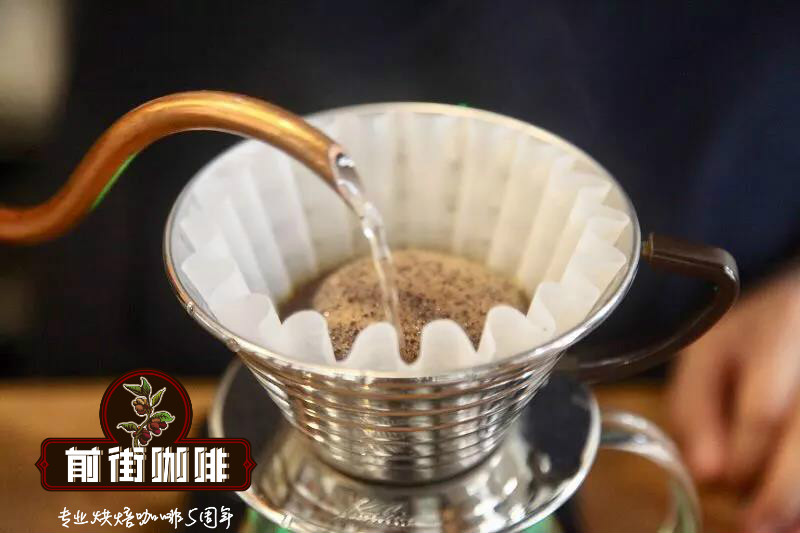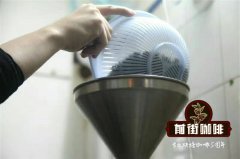Is decaffeinated coffee really healthier than regular coffee?

Professional coffee knowledge exchange More coffee bean information Please pay attention to coffee workshop (Weixin Official Accounts cafe_style)
Coffee is a necessary drink for many people every day, not only to boost the spirit or wake up, but also a kind of life, but perhaps many people because of fear that caffeine will harm themselves can not sleep and can not contact delicious coffee, is it because drinking the wrong coffee makes you so worried about insomnia or palpitations?
coking reaction
The more coking reactions cause palpitations and body burdens, and some of the dissolved substances are not good for the body. There are about the following coking reactions:
baking coking
With so many countries and farmers growing coffee beans around the world, coffee makers have many choices. Some choose lower-cost, lower-quality beans. Roasting makes the beans smell rich, but it has caused the oil to scorch and release substances that easily cause palpitations and body burdens.
bean-grinding
Bad grinding machine in the knife plate heat dissipation is not good, will cause the heat generated in the grinding beans so that the contact area of coffee powder heat absorption caused by excessive coking, but also lost flavor.
extractive coking
In the process of extraction, because the time is too long or the brewing water temperature is too high, it not only affects the taste of the coffee itself, but also makes the coffee beans release bad substances.
Decaffeinated Coffee (Decaf)
Commercial decaf coffee is easy to find on the Internet, even Starbucks is selling, coffee hunters do not recommend you to use decaf coffee, decaf coffee because the processing process will reduce caffeine, and therefore reduce the flavor of many coffee, then, the original intention of drinking coffee is lost.
Decaffeinated Coffee Treatment:
indirect solvent
In this way, coffee beans are soaked in near-boiling water for several hours, extracting caffeine and many flavor elements into the water. This water is then separated from the coffee beans, and methylene chloride or ethyl acetate is added. Chemical molecules break down the caffeine, and heat evaporates the caffeine. The final liquid is then introduced into the coffee beans to reabsorb the coffee fat and aroma. This method is quite popular in Europe, and there are also names such as European Law, Methylene Chloride Law, European Steps, etc.
direct solvent
This method steams the coffee beans for about 30 minutes, allowing the pores of the coffee beans to be heated and then rinsed with a solvent, usually methylene chloride or ethyl acetate. After about 10 hours, the caffeine is removed, and then the solvent is discarded and the coffee beans are steamed again to remove the residual chemicals. This method usually uses ethyl acetate, also known as natural decaffeination or ethyl acetate.
Swiss Water Treatment Act
When coffee beans are soaked in warm water, caffeine dissolves in the water. Activated carbon filters filter caffeine and pour the solution back into the beans. This method does not use chemical solvents, but coffee loses a lot of flavor during the filtration process.
carbon dioxide high pressure extraction
In this method, coffee beans soaked in water are placed in stainless steel buckets, and high pressure is applied to turn the released carbon dioxide into a liquid, which extracts the caffeine. The carbon dioxide liquid is then returned to room temperature and returned to gas. This method is usually used for large quantities of coffee beans because of the cost, such as branded brands that can be found in supermarkets.
Is Decaf Coffee Really Healthier Than Regular Coffee? A 2006 report from the University of Florida found that almost all decaf coffee actually contains some amount of caffeine.
Caffeine is the most widely consumed drug worldwide. Researchers at the University of Florida have reported in the Journal of Pharmaceutical Analysis that Espresso contains 3 to 15.8 milligrams of caffeine per unit, compared with 12 to 13.4 milligrams per 16 ounces of coffee. If a person drinks five to ten cups of decaf coffee, the amount of caffeine he consumes is actually close to the amount of caffeine he consumes when drinking one or two cups of normal coffee. Another author of the journal, William R. Dr. Bruce Goldberger, a forensic scientist at the Maples Center, also said the results of the study may be worrying for people who have been advised to reduce caffeine intake because of kidney disease or anxiety. If your doctor advises you not to consume caffeine, you should stop drinking decaf coffee.
END
Important Notice :
前街咖啡 FrontStreet Coffee has moved to new addredd:
FrontStreet Coffee Address: 315,Donghua East Road,GuangZhou
Tel:020 38364473
- Prev

Where does the best coffee in the world come from? How about Chinese Hainan coffee? Present situation of coffee in Hainan
Professional coffee knowledge exchange more coffee bean information Please follow the coffee workshop (Wechat official account cafe_style) mention Hainan, what do you think of? Sunshine and beach, coconut wind and sea rhyme? How many people know that Hainan is also rich in coffee, and the quality is not inferior to the world-famous South American coffee? At the beginning of the 19th century, Xia Nanyang has become a choice for most people in Hainan to make a living.
- Next

The origin of bourbon? Flavor characteristics of Brazilian Yellow bourbon Coffee
Bourbon is actually a variety of coffee, one of the Arabica coffee beans. The word bourbon comes from the local name, which is an overseas province of France, an island in the Indian Ocean, hence the name bourbon coffee. Today, the name of the island is no longer bourbon, it has been renamed Niliuwang Island, while the name of coffee is still in use today. Country: Brazil level: COE production area: Mojian
Related
- Guji coffee producing area of Guji, Ethiopia: Humbela, Shakiso, Wulaga
- What is the most expensive variety of Qiloso in BOP multi-variety group?
- How to store the coffee beans bought home?
- Why are Yemeni coffee beans so rare now?
- Ethiopian Sidamo all Red Fruit Sun Sun Santa Vini Coffee beans
- SOE is mostly sour? What does it mean? Is it a single bean? what's the difference between it and Italian blending?
- Is Italian coffee beans suitable for making hand-brewed coffee?
- How to choose coffee beans when making cold coffee? What kind of coffee beans are suitable for making cold coffee?
- Just entered the pit to make coffee, what kind of coffee beans should be chosen?
- Can only Japan buy real Blue Mountain Coffee? What are authentic Jamaican Blue Mountain coffee beans?

